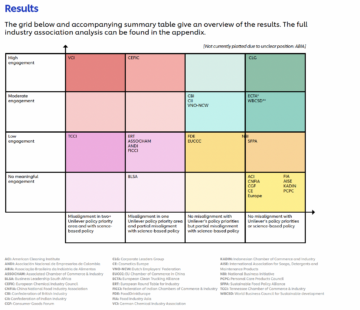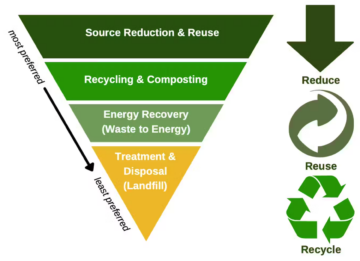
A University of Queensland-led study has warned that vigilance is needed to prevent the concept of a “nature positive” world being overwhelmed by a rising tide of corporate “greenwash.”
The report argues a planet where rapid biodiversity loss is halted and reversed, and nature is restored, is urgently needed in order to halt the mass extinction of species, deliver on global climate goals and provide the economy with the food, water, clean air and healthy environment that it is reliant upon.
As such, it says “Nature Positive” has already become a popular phrase within the conservation community and is being embraced by businesses, governments and financiers in a manner that is similar to the widespread adoption of net zero targets.
For instance, more than 90 world leaders have signed on to the Leaders’ Pledge for Nature, which calls for a Nature Positive future to be achieved by 2030, while 11 global Fortune 100 companies have aspirations to contribute to the global Nature Positive goal, according to the report.
There can be no shortcuts.
However, researchers behind the report — “Nature positive must incorporate, not undermine, the mitigation hierarchy” — also warned that some of these pledges lack the scientific rigor needed to achieve real impact and as such they put “Nature Positive” commitments at risk of becoming little more than greenwash.
It added that such misleading claims were already evident in the loose application of the term by NGOs to simply mean “doing things that are good for nature” and the practice of companies linking the concept with questionable biodiversity credit schemes.
Moreover, the report warns that a “Nature Positive approach” may cause harm to nature protection efforts if it distracts from existing schemes that focus on avoiding and reducing the harmful impacts of economic development on biodiversity.
Contributing author Professor Dame EJ Milner-Gulland of the University of Oxford’s department of biology, cautioned that “aspirational phrases” must not replace practical steps to protect nature from damage nor ensuring that any damage done is fully and demonstrably compensated for.
“There can be no shortcuts,” she said. “The concept of Nature Positive provides an optimistic and aspirational vision of the future we want for humanity and for nature.”
There is a real concern that a growing focus on biodiversity offset credit schemes risks displacing more urgent and established efforts to minimize corporate impacts on biodiversity.
Recent work by researchers in Milner-Gulland’s department has also highlighted the varied ways in which businesses and organizations define “Nature Positive,” finding that many do not incorporate the Mitigation Hierarchy to first address direct impacts on nature before moving on to broader actions.
Joseph Bull, another of the report’s contributing authors from Oxford University’s Department of Biology, added that there is a real concern that a growing focus on biodiversity offset credit schemes risks displacing more urgent and established efforts to minimize corporate impacts on biodiversity.
“Laudable though proactive conservation efforts are, we will only get to Nature Positive if they come after negative impacts have been mitigated,” he argued.
The research comes just days after KPMG polling revealed that more than half of British consumers claim they would stop buying from a company that was found to have misled customers over its green credentials.
Moreover, it follows reports Sept. 19 that EU institutions had finalized both a ban on companies claiming products are climate-neutral and requirements that affixes such as “eco” and “natural” be backed by solid evidence, subject to final approval by member nations and the European parliament’s plenary assembly.
“Nature Positive” may be a relatively new term, but without clearer definitions and a real commitment from government and businesses to deliver net gains in biodiversity it is already at risk of falling victim of greenwash. The hope is that policymakers, conservationists and businesses alike all redouble efforts to ensure nature positive initiatives deliver real world gains.
- SEO Powered Content & PR Distribution. Get Amplified Today.
- PlatoData.Network Vertical Generative Ai. Empower Yourself. Access Here.
- PlatoAiStream. Web3 Intelligence. Knowledge Amplified. Access Here.
- PlatoESG. Carbon, CleanTech, Energy, Environment, Solar, Waste Management. Access Here.
- PlatoHealth. Biotech and Clinical Trials Intelligence. Access Here.
- Source: https://www.greenbiz.com/article/greenwashing-already-threatening-uproot-nature-positive-initiatives
- :has
- :is
- :not
- :where
- 100
- 11
- 2030
- 90
- a
- According
- Achieve
- achieved
- actions
- added
- address
- Adoption
- After
- AIR
- alike
- All
- already
- also
- an
- and
- Another
- any
- Application
- approach
- approval
- ARE
- argued
- Argues
- AS
- Assembly
- At
- author
- authors
- avoiding
- backed
- Ban
- BE
- become
- becoming
- been
- before
- behind
- being
- biology
- both
- British
- broader
- bull
- businesses
- but
- Buying
- by
- Calls
- CAN
- Cause
- claim
- claiming
- claims
- clearer
- Climate
- come
- comes
- commitment
- commitments
- community
- Companies
- company
- compensated
- concept
- Concern
- CONSERVATION
- contribute
- contributing
- Corporate
- Credentials
- credit
- Customers
- damage
- Days
- define
- definitions
- deliver
- Department
- Development
- direct
- do
- doing
- done
- Economic
- Economic Development
- economy
- efforts
- embraced
- ensure
- ensuring
- Environment
- established
- Ether (ETH)
- EU
- European
- European Parliament
- evidence
- evident
- existing
- extinction
- Falling
- final
- finalized
- finding
- First
- Focus
- follows
- food
- For
- Fortune
- found
- from
- fully
- future
- Gains
- get
- Global
- goal
- Goals
- good
- Government
- Governments
- Green
- Growing
- had
- Half
- harm
- harmful
- Have
- he
- healthy
- hierarchy
- Highlighted
- hope
- HTTPS
- Humanity
- if
- Impact
- Impacts
- in
- incorporate
- initiatives
- instance
- institutions
- IT
- ITS
- jpg
- just
- KPMG
- Lack
- leaders
- linking
- little
- loss
- manner
- many
- Mass
- Mass extinction
- May..
- mean
- member
- minimize
- misleading
- mitigation
- more
- moving
- must
- Nations
- Natural
- Nature
- needed
- negative
- net
- New
- NGOs
- no
- nor
- of
- offset
- on
- only
- Optimistic
- order
- organizations
- over
- overwhelmed
- Oxford
- oxford university
- parliament
- phrases
- planet
- plato
- Plato Data Intelligence
- PlatoData
- Pledge
- policymakers
- Popular
- positive
- Practical
- practice
- prevent
- Proactive
- Products
- Professor
- protect
- protection
- provide
- provides
- put
- rapid
- real
- real world
- reducing
- relatively
- replace
- report
- Requirements
- research
- researchers
- restored
- Revealed
- rising
- Risk
- risks
- s
- Said
- says
- schemes
- scientific
- sept
- she
- signed
- similar
- simply
- solid
- some
- Steps
- Stop
- Study
- subject
- such
- targets
- term
- than
- that
- The
- The Future
- There.
- These
- they
- things
- though?
- Tide
- to
- Undermine
- university
- University of Oxford
- upon
- urgent
- Victim
- vigilance
- vision
- want
- Warns
- was
- Water
- ways
- we
- were
- which
- while
- widespread
- will
- with
- within
- without
- Work
- world
- would
- zephyrnet
- zero









